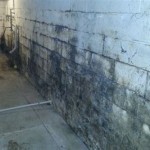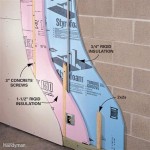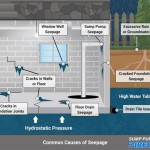Should You Insulate Your Basement Ceiling?
If you're looking for ways to make your home more comfortable and energy-efficient, insulating your basement ceiling is a great place to start. Basement ceilings are often overlooked when it comes to insulation, but they can have a significant impact on your home's comfort and energy use. Here are a few things to consider when deciding whether or not to insulate your basement ceiling:
Benefits of Insulating a Basement Ceiling
There are several benefits to insulating your basement ceiling, including:
- Increased comfort: Insulation helps to keep the temperature in your basement more consistent, making it more comfortable to spend time in. In the winter, insulation will help to keep the basement warmer, while in the summer, it will help to keep it cooler.
- Reduced energy costs: Insulation can help to reduce your energy costs by keeping the heat in your home during the winter and the cool air in during the summer. This can lead to significant savings on your heating and cooling bills.
- Improved air quality: Insulation can help to improve the air quality in your basement by reducing the amount of dust and other allergens that circulate through the air. This can be especially beneficial for people with allergies or asthma.
- Reduced noise levels: Insulation can help to reduce noise levels in your basement, making it a more peaceful and quiet place to spend time.
Types of Insulation for Basement Ceilings
There are several different types of insulation that can be used for basement ceilings, including:
- Fiberglass insulation: Fiberglass insulation is the most common type of insulation used in homes. It is made from glass fibers and is available in batts, rolls, and loose-fill form.
- Cellulose insulation: Cellulose insulation is made from recycled paper and is available in loose-fill and spray-foam form. It is a good choice for areas that are difficult to insulate with fiberglass insulation.
- Spray foam insulation: Spray foam insulation is a type of expanding foam that is applied directly to the surface of the ceiling. It is a good choice for areas that are difficult to insulate with other types of insulation.
How to Insulate a Basement Ceiling
Insulating a basement ceiling is a relatively simple project that can be completed in a few hours. Here are the steps involved:
- Prepare the surface: The first step is to prepare the surface of the ceiling by removing any dust or debris. If there are any holes or cracks in the ceiling, you should patch them before insulating.
- Install the insulation: The next step is to install the insulation. The type of insulation you use will determine the specific installation instructions, but most types of insulation can be installed by simply stapling or nailing it to the ceiling joists.
- Cover the insulation: Once the insulation is installed, you should cover it with a vapor barrier. A vapor barrier is a thin sheet of plastic that helps to prevent moisture from getting into the insulation and causing it to lose its effectiveness.
Conclusion
Insulating your basement ceiling is a great way to improve the comfort and energy efficiency of your home. If you're looking for a relatively simple and inexpensive way to make your home more comfortable, insulating your basement ceiling is a great option.

Should I Insulate My Basement Ceiling And Walls Aire Serv

What Is Basement Ceiling Insulation And It Worth

Ceiling Insulation In Your Basement

Should I Insulate My Basement Constellation

Best Insulation For Basement Ceilings And Why You Need It

Basement Insulation Problems 4 Things That Can Cause You Troubles

What Are The Pros And Cons Of Basement Ceiling Insulation Upgradedhome Com

Best Insulation For Soundproofing Your Ceiling Renoviso

Basement Ceiling Insulation Pros And Cons Home Logic

Basement Ceiling Insulation Interior Inspections Internachi Forum








